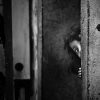
Why am I here? What is life all about? What is the purpose of existence? These are the questions that many of us find ourselves facing at some or maybe many points in our life.
We may rummage through the latest theories of science and philosophy, but whatever new concepts we take on, however ingenious, they never seem to wholly satisfy. We may delve into religion and spirituality, but despite hearing the whisper of something familiar, something beautiful, we often find them overly dogmatic and impenetrable—a new collection concepts to add to the ever growing pile. We share our questions with friends, family and colleagues, but find that the general response is not to worry about it too much, to just get on with life and make the best of it.
In finding no satisfactory solution many of us give up seeking those seemingly elusive answers and instead immerse ourself once more in the busyness of life—to drown out all the anxiety that those ‘big’ questions seem to provoke.
But some of us simply cannot settle for less and keep on looking. We jump from book to book, from spiritual path to spiritual path as our tireless quest continues to prove fruitless; until maybe a new question arises which, before now, had never even been considered:
Who is the one that is asking all the questions?
Are we really the separate, limited entity that our stock of second-hand knowledge would have us believe?
In our childlike, first-hand experience, can we find whatever is knowing these words? That is knowing the thought that says, “Yes, it’s in my head”? That is knowing the bundle of sensations we label ‘my head’? That knows the sound of birdsong as intimately as the tingling in our fingers?
In exploring our deeply held assumptions we find ourself at the edge of our thought-made version of reality, the edge of reason, facing a seeming chasm of uncertainty. We imagine that to fall into that abyss of not knowing would lead to insanity, that we’d no longer be able to function in the world, and so we retreat from the edge, back into the apparent safety and support of our familiar structures of knowledge. We may find ourself there on that ledge again and again, held back by an invisible barrier of fear, unable to move beyond.
We are like Indiana Jones in ‘The Last Crusade’! Standing precariously at the edge of the abyss, “Only in the leap from the lion’s head will he prove his worth,” says the Holy Grail diary. “It’s a leap of faith!” cries Indy in disbelief.
When the longing for the truth overshadows our fears, or we’re inspired by a deep and profound sense of love, or else we suffer some personal tragedy and our known world simply crumbles to pieces, that mysterious movement takes place—we courageously step through that barrier of fear, fall from the edge of that precipice, and . . .
. . . nothing happens! We don’t die, we don’t go mad or experience unspeakable violence; rather, in moving beyond the constraints of our mind frame, we feel vivified and vibrantly alive.
In the film, Indy steps into the gaping chasm only to discover he is supported by an invisible bridge. He then finds the Holy Grail—a cup from which his dying father drinks and is miraculously healed of his mortal wounds.
But the ‘Holy Grail’ we discover is no physical object with supernatural qualities, it is true Self realisation. We see life beyond the naming and framing of thought, and find a living fabric of colours, shapes and forms, interwoven with a soundscape, a feelingscape, with tastes, smells and thoughts, with pulsing, tingling energetic aliveness, and what we truly are is knowing and being the substance of every thread of this living tapestry. It’s with that recognition that our own healing can begin. Healing from the dis-ease and psychological suffering born of the mis-belief that we are but a limited fragment of life.
We don’t then abandon our concepts and education; we can enjoy playing in the realm of ideas, of language, of number. We just appreciate their limitations—that who we really are could never be understood by a thought. Even the three wise men, with all their great knowledge, bow down before the baby Jesus. Unlocked from their rigid, literal interpretations, we see the deeper truth of the world’s great religions.
And what of our quest for the meaning of life?
In believing the very thought that asks the question, we simultaneously create its counterpart, the belief in a separate ‘me’ in need of an answer. Similarly, as the belief that we are a fragment of life dissolves, so too do all the questions.
And in that sacred union we go from longing, to loving and celebrating this wondrous miracle of being.



